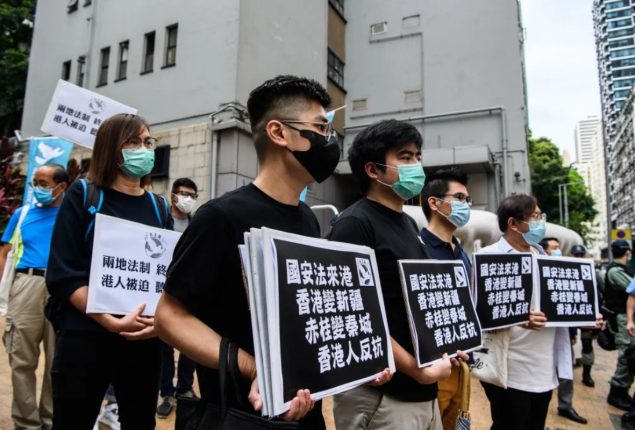Hong Kong introduces new National Security Law Bill with tougher jail terms
The draft also introduces new laws covering treason, espionage, and external interference....

Hong Kong enacts stringent security law amidst controversy
Hong Kong authorities have enacted a stringent security law, deemed necessary for stability, but raising concerns among critics about further erosion of civil liberties. Article 23 focuses on creating new offenses such as external interference and insurrection, with penalties including life imprisonment. The city’s pro-Beijing parliament fast-tracked its final stage, pushing it through in less than two weeks.
China earlier imposed a controversial national security law (NSL), which Article 23 expands upon. This law already criminalizes secession, subversion, terrorism, and collusion with foreign forces in Hong Kong.
Hong Kong’s leader, John Lee, has asserted that Article 23 is essential to safeguard against “potential sabotage and undercurrents that attempt to create troubles,” particularly ideas of an independent Hong Kong. He praised the passing of the law as “a historic moment that Hong Kong people have awaited for over 26 years.”
China’s Vice-Premier Ding Xuexiang previously emphasized that the swift enactment of the new legislation would safeguard “core national interests” and enable Hong Kong to concentrate on economic development.
Since its passage in 2020, authorities have arrested scores of individuals under the NSL, creating a climate of fear according to critics. Sarah Brooks, Amnesty International’s China director, condemned the new law as “delivering another crushing blow to human rights in the city.” Meanwhile, Maya Wang, acting China director at Human Rights Watch, warned that it would “usher Hong Kong into a new era of authoritarianism.”
“Now even possessing a book critical of the Chinese government can violate national security and mean years in prison in Hong Kong,” she said, calling on the government to repeal it immediately.
Hongkongers have expressed concerns regarding Article 23, particularly criticizing the use of broad and vague definitions in the legislation.
George, a civil servant, told the news that he was primarily concerned about the legislation’s definition of “state secrets.”
“Let’s say a group of colleagues go out to lunch and discuss how to handle some work matters. Will it constitute leaking a state secret? Will we be arrested if someone eavesdrops and spreads the information?” he said.
“I am very afraid that we can be accused [of the offense] easily.”
George noted an “informant culture” among his colleagues since the earlier law came into force. He estimates that approximately one-fifth of the employees in his department have resigned in the past three years, with many of them relocating overseas.
Catch all the International News, Breaking News Event and Latest News Updates on The BOL News
Download The BOL News App to get the Daily News Update & Follow us on Google News.